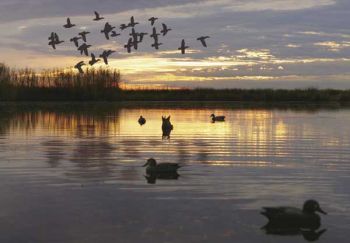
Lottery hunts for waterfowl are special. Here are some tips to make sure your hunt is the best.
Arriving with the same excitement as a money-laden birthday card from Grandma, the result of my 2006-07 application for a waterfowl hunt was in my mailbox.
Only a few weeks earlier, I had poured over past Wildlife Management Area (WMA) hunt results and upcoming season dates in deciding what dates to select on my application. But because I always select “any date” on the application, I might get a date at the opposite end of the season on a WMA that was not one of my top choices — or I might get my first pick.Only a few weeks earlier, I had poured over past Wildlife Management Area (WMA) hunt results and upcoming season dates in deciding what dates to select on my application. But because I always select “any date” on the application, I might get a date at the opposite end of the season on a WMA that was not one of my top choices — or I might get my first pick.
As I tore into the envelope, I had the same feeling of anticipation, wondering whether Grandma had put a $10 or $20 bill in my card. The hunt I got was not my first choice of WMA and date, but at the same time, it wasn’t a rejection letter, either. I had been drawn to hunt Cedar Island at Santee Coastal Reserve WMA on the next-to-last hunt of the season.
I routinely pick the last hunts of the season on any WMA I choose. The reason is not the challenge of late-season ducks; instead, I play the odds that the weather will be cold.
Click here to read more on Open to the Public



Be the first to comment